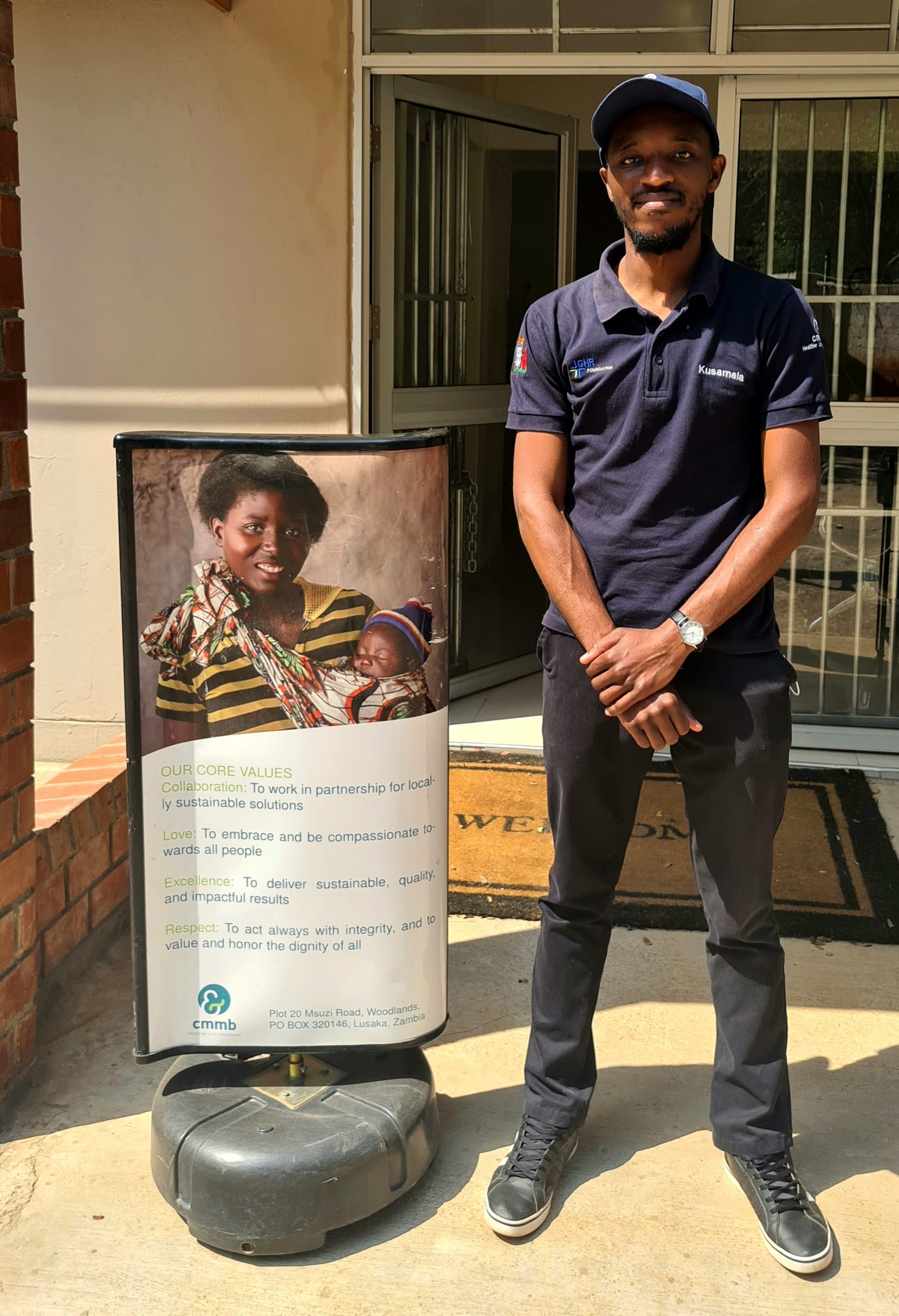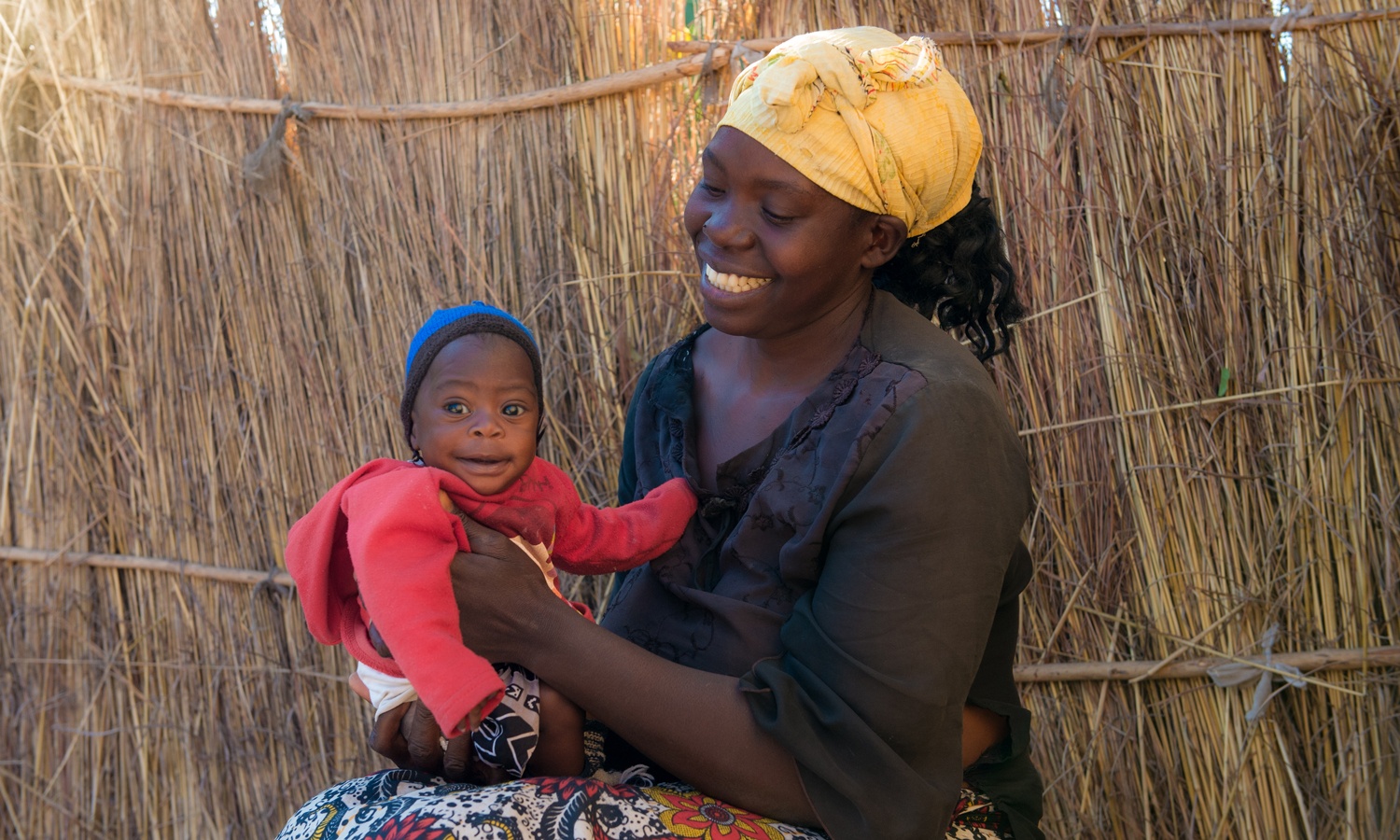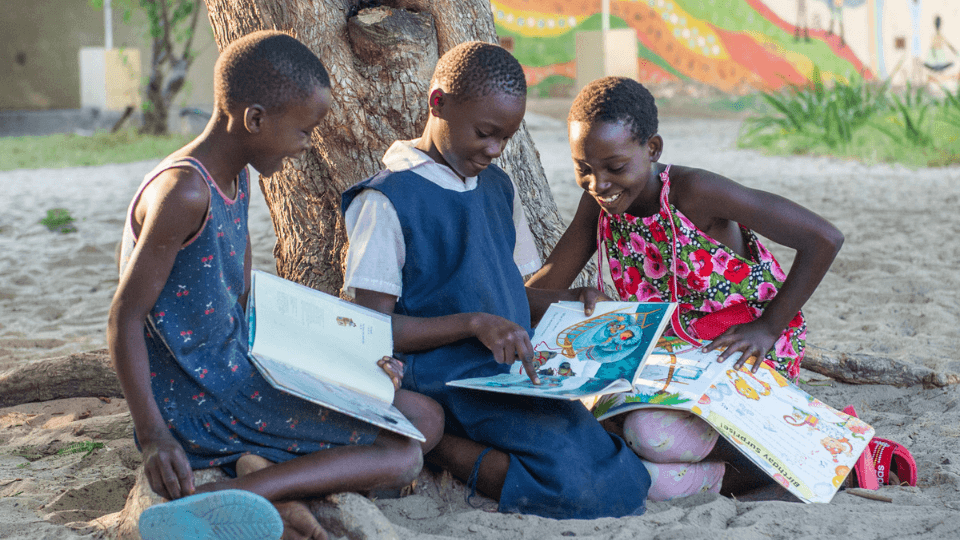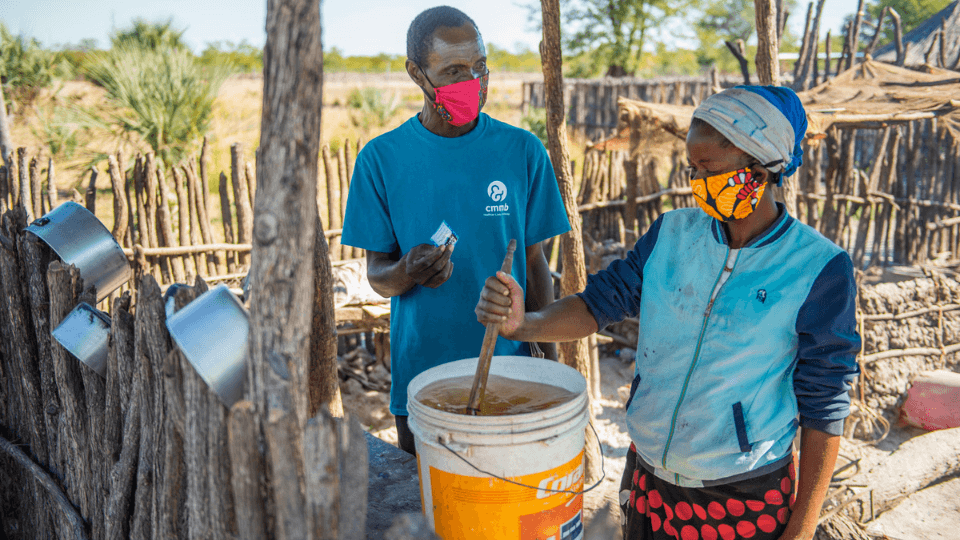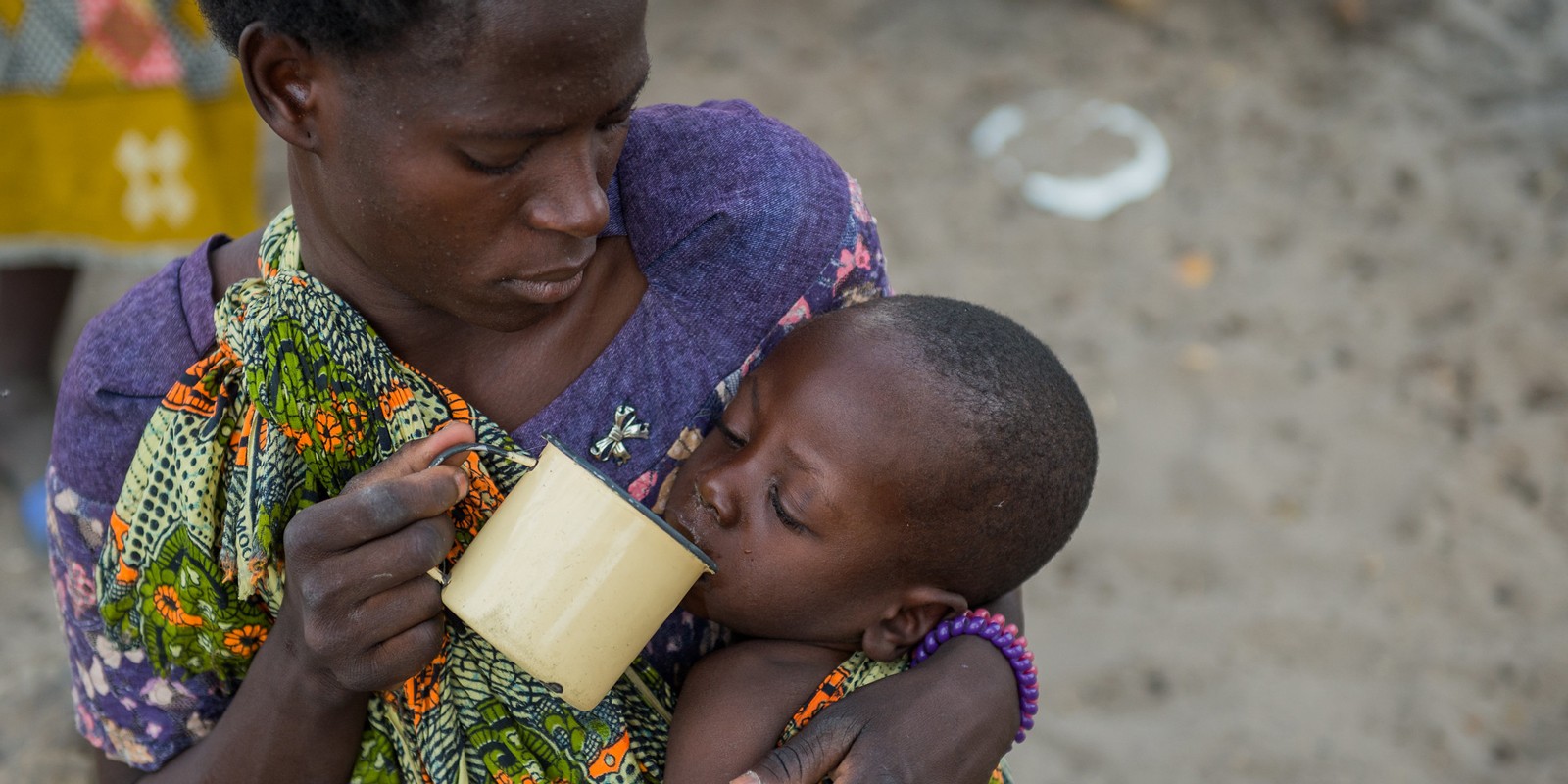“It’s Not About Numbers, It’s About Real Individuals” – Monitoring and Evaluation Officer Shares Insights
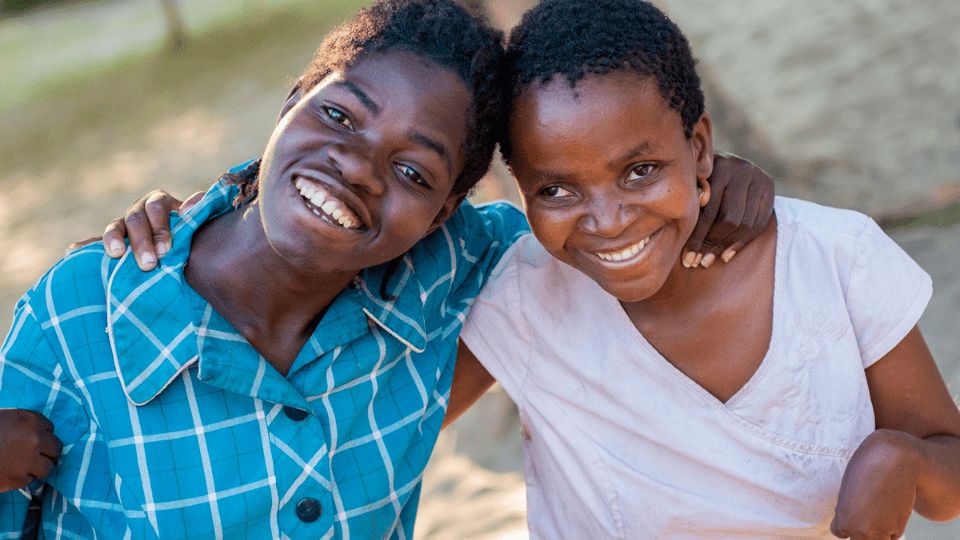
Edgar Lunda is a monitoring and evaluation officer for CMMB’s child protection programs in Zambia. In this interview, learn more about Edgar’s work and what keeps him motivated.
What inspired you to work in the development sector?
A very important aspect that helps drive many of the decisions that I’ve made in my career is my faith. One verse that comes to mind is when God summarized the last five commandments and said to “love your neighbor as you love yourself.”
When I looked at CMMB and its vision for healthier lives worldwide, even regarding mothers and children, I saw an opportunity where I would not just be going to work for a paycheck. I’ll be part of the process and a team looking to impact the lives of individuals; real people in real communities who are disadvantaged.
“I saw an opportunity where I would not just be going to work for a paycheck.”
When I looked at the organization’s core values -collaboration, love, excellence, respect- I saw how that aligned with my values. That is one thing that keeps me going; realizing that the job I am doing is contributing, along with a bigger team, towards helping the lives of individuals in different communities that we are working in.
Tell us about your role as the Monitoring and Evaluation Officer on the projects you are currently working on.
I currently provide monitoring and evaluation support for the three different projects under the Child Protection and Health Program: Improving Nutrition & Safe Feeding Practices, Kusamala Plus Project, and Kusamala Main Project.
My job is to help the team track the impact of the program. At the end of the month, we review the activities and discuss whether we are meeting our program objectives. I also help with course correction during our reviews. In providing support and insight with the developing, monitoring, and evaluation framework for the entire project, we can meet our intended goals and provide technical assistance to the staff.
As a team, we ask questions to ensure that there will be a sense of local ownership of the projects we work on. That is a goal we have for all the Child Protection projects.
What does your day-to-day work looks like as a Monitoring and Evaluation Officer?
I look at how I can help facilitate the work that the program team is doing. This looks different on a day-to-day basis. Some days, it means sitting down with the program team to review the activities they have done and ask if the activities being implemented are working towards our framework and objectives. We also discuss the tools they have been using to collect data and if they are still relevant to the activities being implemented in the communities.
On other days, I speak with the team about the data they’ve submitted and address any anomalies or gaps found. From this, I look for ways to improve programs and data collection.
What is the most challenging part of your work?
While working on the projects that help children with disabilities, hearing the stories of the mothers is often heartbreaking and difficult for me to experience. One of our evaluations involved us picking ten mothers from two of our communities and giving them cameras to take pictures of their everyday lives, taking care of their children with disabilities. There was a point when we had to interview the mothers in their homes. I sat with the mothers and listened as they shared the challenges of raising their children.
These mothers did not come from urban areas and were economically challenged. Still, they were working so hard trying to make ends meet. Interviewing them about their stories was one of the more challenging experiences for me on the project. Even beyond the evaluation, when we were doing our end-of-month and quarterly reports, we reviewed the interventions and repeatedly heard those stories. It is difficult to think of what those mothers and caregivers go through, especially with these children in difficult circumstances.
It can be very challenging to face these realities on a day-to-day basis. On that same note, how has COVID-19 challenged your work and the work of the project?
The nature of our job is very community intervention-based. We interact with the beneficiaries of the project by going into their communities. As we do this, we are also accounting for different perspectives with the various respective local ministries.
With the first case of COVID-19 in Zambia, our activities did not come to a complete hold, but they slowed down. We could still go into the communities, provided we followed the guidelines in terms of social distancing and had the necessary PPE, including the face masks.
Initially, it was okay for these activities to continue with these guidelines in place. Even if we needed to have a meeting with people, we followed the guidelines. The last two to three months have been the most difficult since the pandemic started because we have had the highest surge here. The Ministry of Health sent out a message that required us to pause some of our activities until the situation improved. As the number of deaths and the number of cases rose sharply, we could not go out into the communities and implement these activities.
Apart from the activities themselves, responding to the psychological tolls that the pandemic took on the team was a challenge. There was a lot of emotional and psychological fatigue on the team, especially with our volunteers in the community. When they would watch the news or go on social media, all they saw were deaths related to COVID-19. So, in addition to not interacting with the community, we were responding to the statistics and dealing with people losing loved ones.
How is the COVID situation now in Zambia?
The COVID-19 cases have been reduced here in Zambia. The Ministry of Health has implemented restrictions and has begun distributing vaccines in the communities. In the last month, we’ve seen the benefit of vaccines, as people now have access to it. As we approach our summer and more people get vaccinated, the situation should start to stabilize.
The work that you do is essential to strengthening communities that you work with. What would you like others, perhaps donors or your colleagues in Zambia or abroad, to know about your work?
I want to highlight the success stories that we share from our data. The success stories are representative of the many projects that we are implementing. It warms my heart knowing that I’ve helped those beneficiaries.
For example, on the Kusamala Plus and Photovoice Evaluation project, I asked the mothers about the benefits they noticed and their limitations. Many of them spoke of the support coming through the Ministry of Health and the Ministry of Community Development and Social Services. The mothers are now aware of the avenues that can be of benefit to them. They don’t have to be in dire or hopeless situations.
This project was also made possible because of the support that we’ve received from the donors. The funding that we are receiving from donors has gone a long way in helping to impact the mothers and children in the various communities we are working with. Considering the challenges that I mentioned, when you hear such stories coming from the mothers, it gives you that drive to continue in the work you are doing.
It is not just about the numbers. It is about real individuals with real problems. Across the board, individuals are sharing stories of how beneficial these interventions have been to them.
“It is not just about the numbers. It is about real individuals with real problems.”
Is there anything else that you would like to share?
I want to express that we continue to work as a team to benefit the individuals, the mothers, and the children of the communities. I am grateful to those who volunteer here in the country office, the support received from the donors, and everything in between. It is always a good reminder of how connected everything is.
